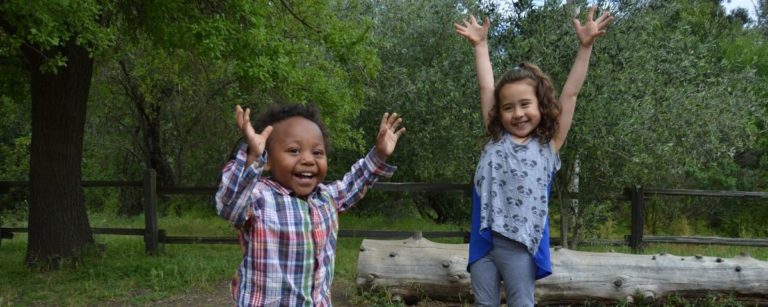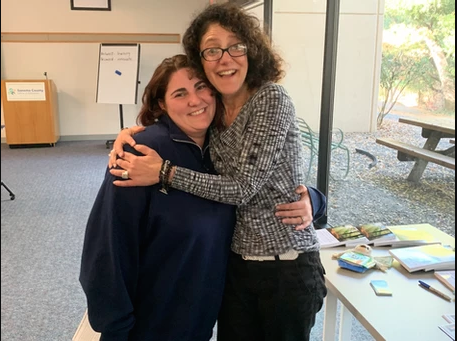Could Mysterious, Persistent Difficulties Raising Your Child be from FASD?
By Dr. Kathryn Page
Research suggests that at least half of adoptees have nervous systems affected by prenatal alcohol exposure
– specifically brain damage that causes all kinds of challenges. Hardly any of us have managed to get formal diagnoses, as the closest diagnostic center at this point is in Los Angeles. There are also “unofficial” but identified disorders such as “Persistent Demand Avoidance” (refusal to do what is asked) and the old “Intermittent Explosive Disorder” along with many regulatory and relational issues that aren’t named outside of the DC 0-5, the manual of early childhood mental health that stops at the age of 5.
Fetal Alcohol Spectrum Disorder
describes the brain dysfunctions that usually poke up into clinical attention as separate conditions with names and treatments and yet do not resolve. Even with great and wise attention to attachment, excellent treatment for the diagnosed conditions, wonderfully enriched environments, and otherwise happy families, some of our kids remain troubled and troubling.
This is where it would be useful to consider FASD.
Some red flags are:
- Multiple diagnoses, including some combination of ADHD, RAD, ODD, Bipolar Disorder, learning disabilities, ASD, PTSD, and mood disorders
- Normal parenting does not seem to work, even when guided by treatments for the diagnosed conditions
- Parents are exhausted, frustrated, and confused
- Professionals give conflicting advice and diagnoses
- Your child has an IQ in the normal range but is not grasping concepts
- Meltdowns occur over small things
- The child acts/thinks younger than chronological age
- Better talker than listener
- Math difficulty
- Sleep disturbances
- Socially interested but inept
- Cause-and-effect reasoning is deficient (so consequences don’t work well)
- Very concrete thinking
You can see threads of ALL the possibly-diagnosed conditions weaving through – that is the hallmark of FASD. It isn’t just one area of dysfunction, or even two or three – but a fabric marked by loose threads, knots, and holes.
Lots of people with FASD go on to happy, productive adulthood
– but almost always this is because the condition has been recognized, understood, and fully supported. Without understanding the underlying fabric of brain damage, our expectations are unrealistic and frustration abounds. Blame, shame, depression and anxiety set in, and failures start to accumulate.
(I should emphasize that the Parkland school shooter does NOT represent people with FASD. Violence is not part of the package. It is a product of the combined exposure to violence and difficulty controlling reactions and impulses.)
Personal Experience living with FASD
How do I know all this, you may wonder? I will tell you, down to the very personal. One day about 25 years ago in Seattle, I stumbled across a Grand Rounds presentation with two of the luminaries in the field of FAS, as it was then known – Fetal Alcohol Syndrome. (FAS was often identified early in infants with characteristic facial features along with dysregulated behaviors, before we knew how important it is to recognize people with the same brain damage who look completely normal.) My own son, who had been mysteriously problematic since the tender age of two months when he entered my life, was suddenly illuminated by the talk I was hearing. I was invited to attend the clinic the next day and observed a family finally getting the understanding that had eluded them through years and countless professionals, to their great relief — “Finally someone understands. We aren’t crazy. There IS something wrong here.” So I went back to San Jose where I was working with a nonprofit and began the process of gathering a team, the resources and training to start our own diagnostic clinic. Mentored by the UW group, we started the Valley Med FASD Diagnostic Clinic.
It was during one clinic day that our mentor from UW, by now a good friend, gently pointed out the connection between my own recent diagnosis of severe ADHD, my bad memory and illegible handwriting, and my alcoholic mom. This was a revelation – it shouldn’t have been (that was MY JOB after all!) but it was! As I began putting in place some of the supports we’d been recommending for our patients, my life became simpler and more successful, and my worries about having a defective character began to dissipate.
FASD is a spectrum.
It ranges from obvious disabilities – low IQ, facial abnormalities, intense dysregulation, multiple medical issues – to people with PhD’s and apparent total normalcy. But the fact is, we really only do well with accurate recognition of the glitches in our functioning and compassion for the havoc they cause. Only then do we put up the kind of scaffolding our wonky nervous systems require for real growth and serenity. Or if we’re lucky and still young, our parents provide those necessary structures and help us move toward self advocacy.
So what does such scaffolding look like?
Of course it depends on your child’s unique pattern of strengths and weaknesses, and everyone with FASD is different – but here are a few examples:
- MAINLY keep in mind that what looks like resistance or manipulation often comes from an inability to do what is asked. From BRAIN DAMAGE. It isn’t on purpose.
- Simplify! Tasks, language, and environment. The inner landscape is one of confusion and scrambling to understand and keep up – make it easier to do that. Break down tasks and provide hands-on help when necessary.
- Stay patient: things will have to be repeated over and over – every day is truly a new day! Rules and expectations may disappear like footprints in the sand.
- Stick with structure and routine: minimize unsupervised time.
- Keep the physical machine as functional as possible – get that sleep nailed down and provide for good nutrition and exercise.
- Find what your child LOVES to do – this is a vein of gold but often buried deep in dark and uncomfortable experience.
- Manage stress.
- Work toward self-knowledge, acceptance and advocacy.
- Use fewer words, shorter sentences and allow TIME TO PROCESS.
- Teach your child to recognize their own feelings, and to ask for help when needed.
Make Self-Care a Parenting Priority!
And maybe, most important, direct some of that compassion toward your own parenting self! Unpleasant and negative reactions are common when we face some of the behaviors that go with FASD, and those won’t disappear overnight – so make self-care a parenting priority.
Kathryn Page earned a PhD from the Center for Psychological Studies in Berkeley and an internship in addiction recovery at Stanford, a few highlights of Kathryn Page’s career include: Disabilities Specialist for the Santa Clara County Juvenile Drug Treatment Court; bilingual School Psychologist in San Lorenzo; 504 Coordinator in the Santa Clara Juvenile Hall; and teacher of social workers with UC Davis Extension.
Dr. Page has been working on FASD for 30 years. She founded and directed the diagnostic clinic in Santa Clara County, CA, and is the co-chair of that county’s 5-year plan. She provides the mandatory FASD training for Los Angeles County’s mental health providers, and advocates for legislation at the state and federal levels. Kathryn consults, writes, teaches, and lives with this condition in her son as well as herself.









